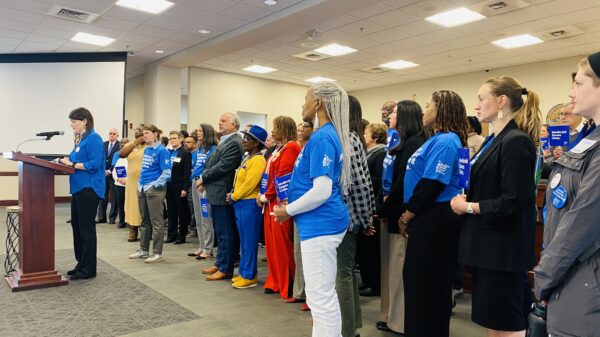Monday, Alabama Governor Kay Ivey (R) announced that the federal government has approved a new statewide care-management program to complement and enhance the state’s current system of long-term care services provided to approximately 23,000 Alabama Medicaid recipients.
The Integrated Care Network (ICN) program was approved by the Centers for Medicare and Medicaid Services (CMS) on September 12, 2018, to offer more community options for Medicaid long-term care recipients. The ICN program is for Medicaid recipients who live in a nursing facility, or receive services in their homes through Medicaid’s Elderly and Disabled (E&D) waiver or the Alabama Community Transition (ACT) waiver.
“This is a significant step in our efforts to transform the delivery of services to Medicaid recipients,” Gov. Ivey said. “My goal remains to ensure that all Alabamians receive high-quality health care, no matter their economic status,” Governor Ivey said. “We will continue to work with CMS to improve our Medicaid system and look for new, innovative ways to bring quality health care to our citizens, especially those in rural Alabama.”
Alabama Medicaid Commissioner Stephanie Azar said, “Over the last few years, Medicaid has been working with the Legislature, CMS and many stakeholders to develop a long-term care program that responds to the needs of these recipients while being sustainable under the state budget. I appreciate the Centers for Medicare and Medicaid Services for approving Alabama’s plan.”
Commissioner Azar praised the efforts of state Senator Greg Reed (R-Jasper), who in 2015 introduced legislation to create the ICN.
“Senator Reed has championed the development of this initiative that will not only help Medicaid recipients now but will lay the foundation to meet future needs in the state,” Commissioner Azar said.
The ICN program, the state will implement a system of case management, outreach and education, with the long-term goal of increasing the percentage of Medicaid recipients receiving in-home care rather than living in a nursing home facility. The Alabama Select Network will administer the program under a contract with the state’s Medicaid agency.
The Alabama Select Network has an address of 3008 Seventh Avenue South in Birmingham. Ronald Chaffin is the Chief Executive Officer.
SeniorSelect Partners is owned by a group of investors representing 28 providers and 120 skilled nursing facilities. The company has two wholly owned subsidiaries: Simpra Advantage, a Medicare Advantage plan with an institutional special needs plan (I-SNP) and Dual-Eligible SNP; and Alabama Select Network, LLC, which was formed to participate in the Alabama Medicaid Integrated Care Network (ICN) managed LTC program.
“To me, the most important part of it was the provider-owners themselves — who were investors and going [to be] at risk for this — decided this was really an opportunity to make themselves more relevant in the health care environment,” Chaffin told Skilled Nursing News. “It starts as a defense mechanism, but then it turns into: ‘We’re a responsible provider, we’re multigenerational owners, we see an opportunity here to invest and become more relevant in health care delivery.’”
Skilled nursing operators have found benefits in providing I-SNPs and are increasingly considering moving into the insurance space.
“If the state’s going to go in the direction of managed care, there should be recognition that provider-sponsored plans will do the same things [as insurers’ plans], but they’ll probably be more in touch with the beneficiaries that they serve because they’re already serving those beneficiaries,” Chaffin said.
The program does not change any Medicaid benefits, but will help recipients learn about and apply for services available to them, such as medication management, support for independent living, or help to manage or prevent illness or accidents.
Medicaid recipients and potential recipients can learn more about long-term care services available to them by calling 1-800-243-5463.
Medicaid is the most expensive portion of the state’s general fund budget and is a joint federal and state program that provides healthcare services for: low income children, lower income pregnant women, the disabled, as well as caring for disabled persons needing long term care services. It is hoped that offering more home healthcare options will allow seniors and the disabled to stay in their homes longer.
(Original reporting by Skilled Nursing News’s Maggie Flynn contributed to this report.)




















































